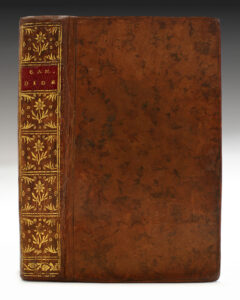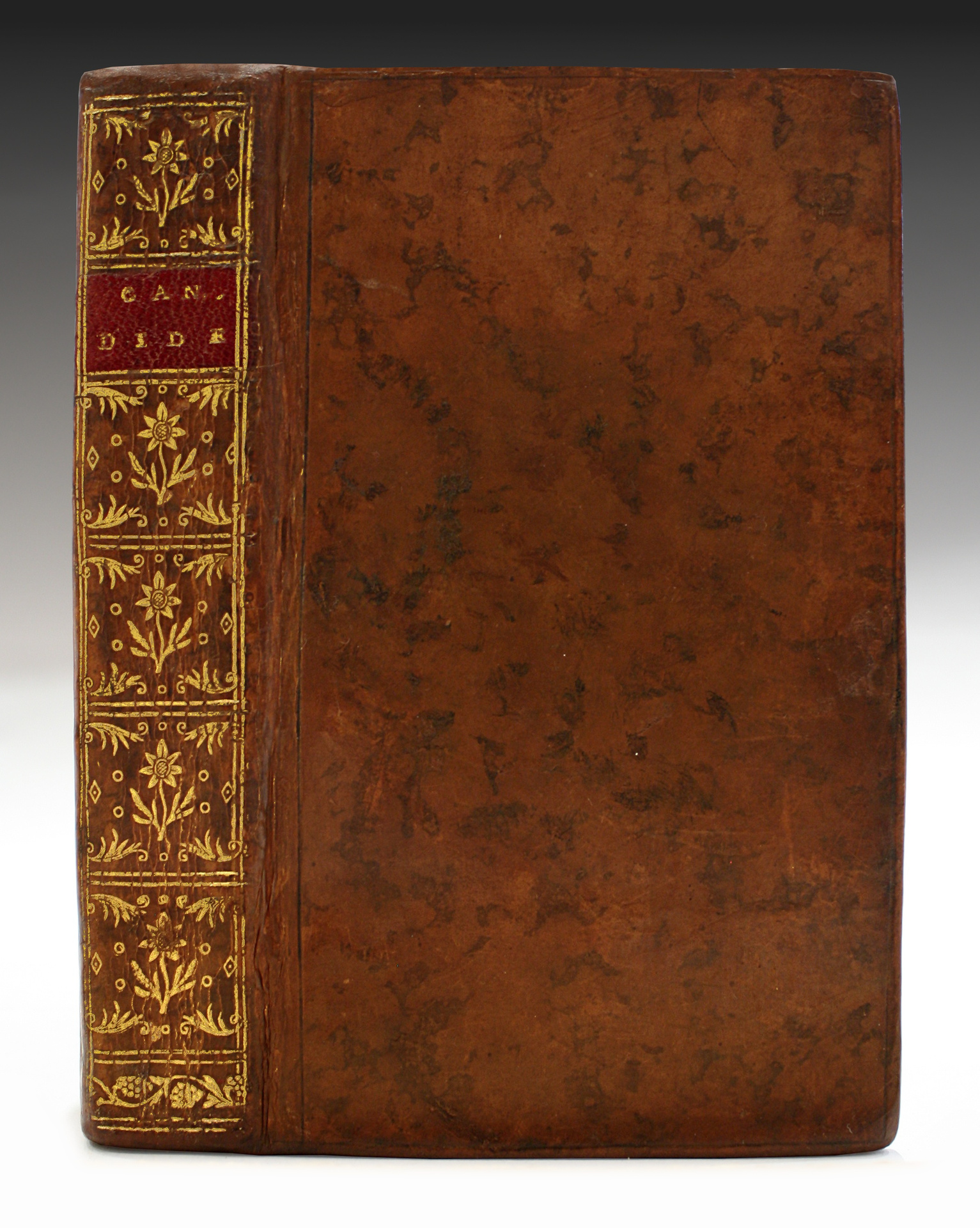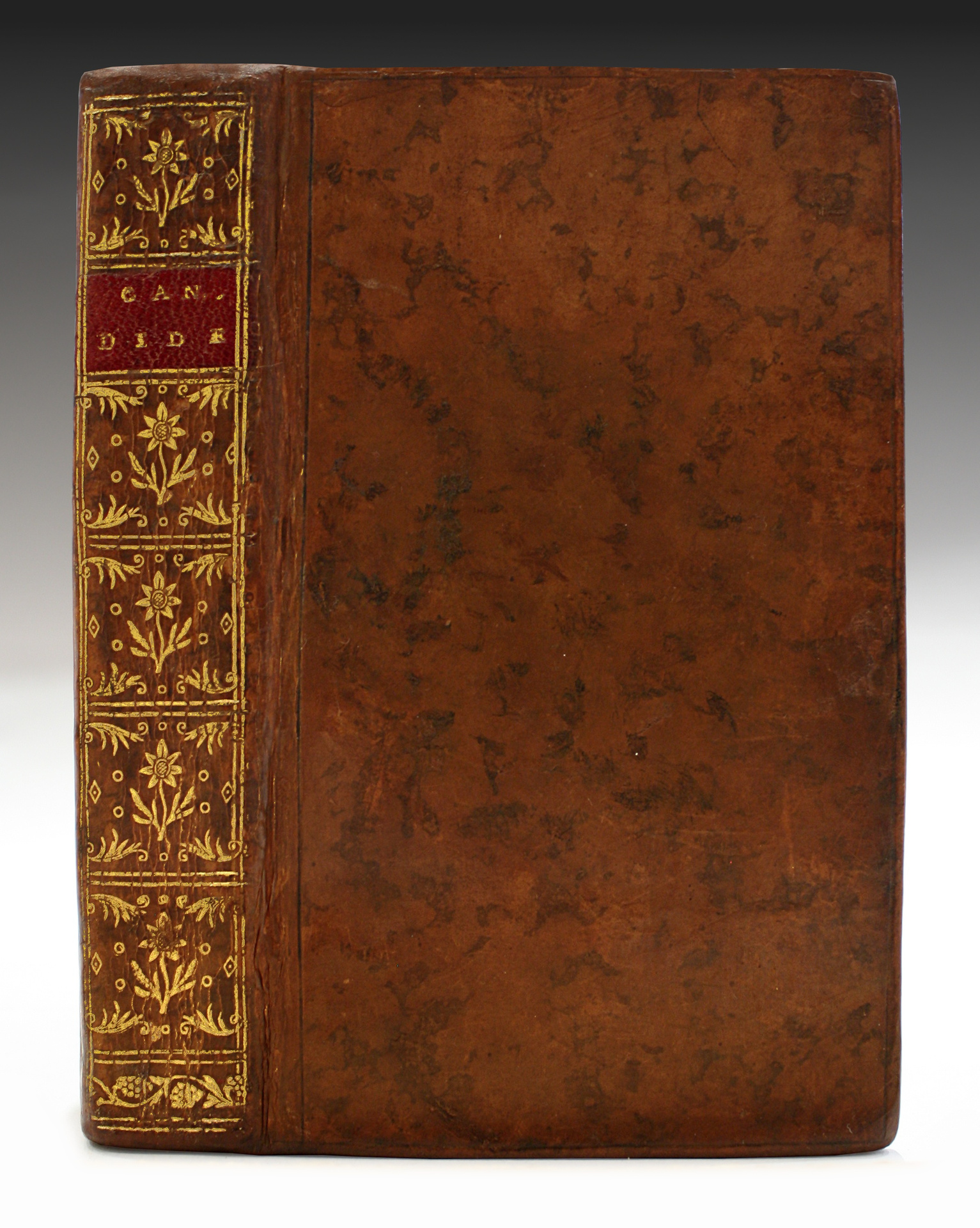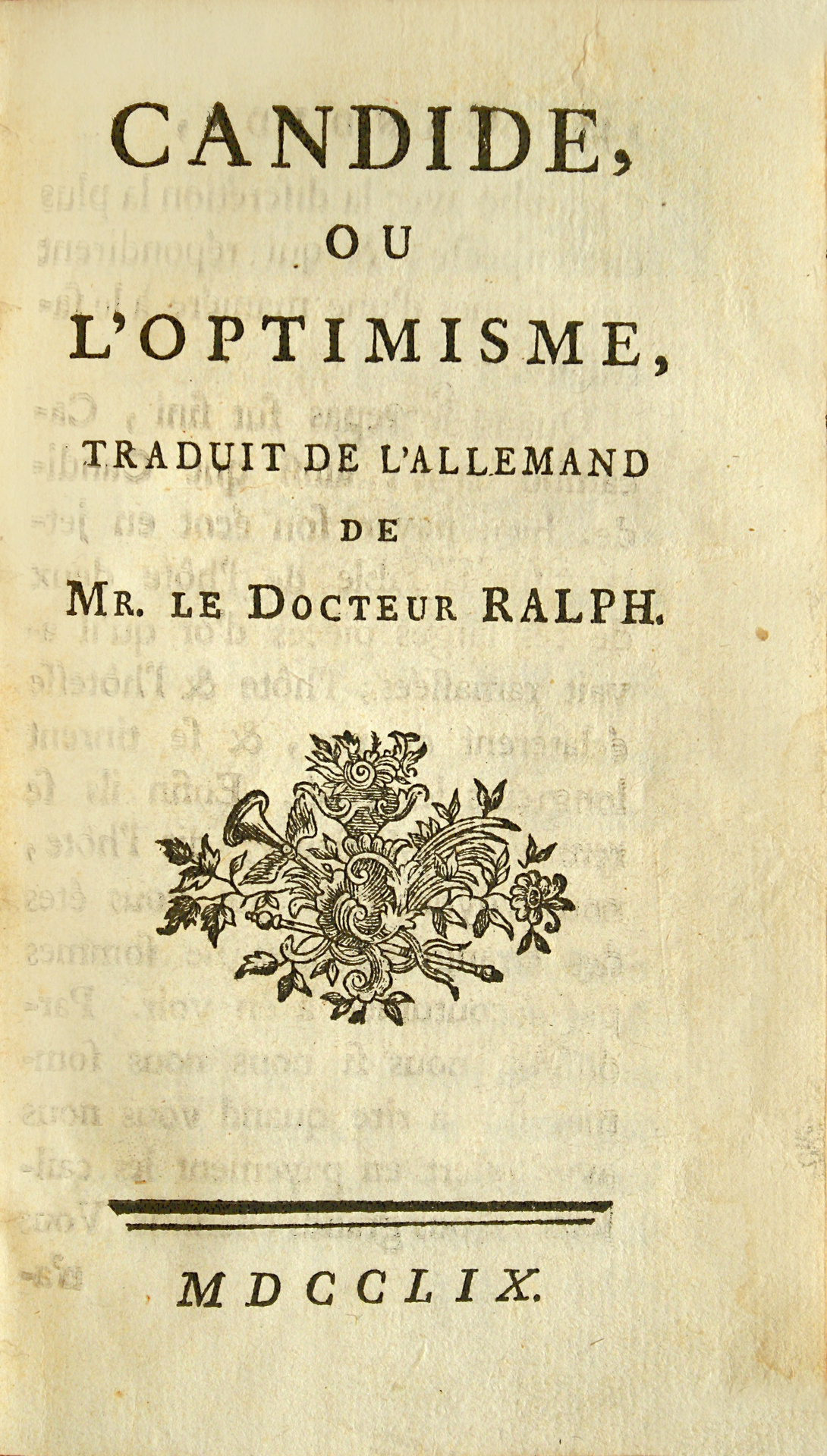N.p. [Genève, Cramer], 1759.
[Bound with]:
II- [Maubert de Gouvest, Jên-Henri]. Ephraïm justifié. Mémoire historique et raisonné sur l’état passé, présent et futur des finances de Saxe… adressé par le Juif Ephraïm à son cousin Manasses d’Amsterdam. Nouvelle édition.
Erlangen, 1758.
III- [From the same author]. Lettre du Prince de Prusse mourant, au Roi son frère.
Erlangen, 1758.
IV- [Rémond de Saint-Sauveur]. Remerciement d’un Particulier à Messieurs les Philosophes du Jour.
V-[Coyer, Gabriel-François]. Lettre au R.P. Berthier sur le matérialisme.
Genève (Paris), 1759.
That is 5 works bound in 1 volume 12mo [161 x 93 mm] of: I/ (1) bl.l., 299 pp. (signatures A-Nh), (1) bl.l.; II/ viii pp., 103; III/ 23 pp.; IV/ 8 pp.; V/ 77 pp. The black ink has slightly rubbed off in transparency during the printing of Candide. Contemporary marbled calf binding, flat spine decorated with gilt patterns, red morocco lettering piece, red edges. Contemporary binding.
True first edition of Candide, « very rare and much sought-after ». (Twelve others were published the same yêr).
It is in accordance with the characteristics given by A. Morize.
« There are eight different editions of Candide, published in 1759 without name of town or editor, all published in the same size, and all having an identical title. Among those 8 editions, this one is the first one. » (Bengesco. B.N.F., En Français dans le texte).
Since March 2nd 1759, Candide was denounced to the council of Geneva which ordered the destruction of the book.
Voltaire is the master of ironical pessimism. Eugène Marsan notes in this respect: “In all his veins, it is the one who less suffered because of time. What was mute in his poetry, dry in his history, short in his philosophy finally put off, wherês Candide’s pessimism seduced more and more”.
This first edition of Candide is very rare.
II/ First edition of this text by Maubert de Gouvest.
Voltaire analyzed a work by this author.
A former Capuchin, he had become the secretary of the king of Poland Stanislas I.
Maubert de Gouvest (1721–1767), “successively artillery officer, Capuchin, Calvinist, director of the French comedians in Germany” (Quérard), fulfilled the first of these roles at the Electoral court of Saxony in 1745, when he took part in the Battle of Dresden against Prussia.
The present work compares these two nations, now engaged in the Seven Yêrs War, in the form of a letter from a German Jew to his cousin in The Netherlands.
Barbier II, cols 140–1; Goldsmiths’ 9385; Quérard V, 629.
III/ Maubert de Gouvest claims in his correspondence with Cobenzl the parternity of the Lettre du prince de Prusse mourant, au roi son frère (Erlangen, 1758).
V/ First edition of this letter, hostile to the philosophers, and which will however be inserted in the 1773 edition of Diderot’s complete works as written by him.
Precious copy of this collection of 18th century texts, including Candide’s first edition, preserved in its contemporary marbled calf binding.
See less information




